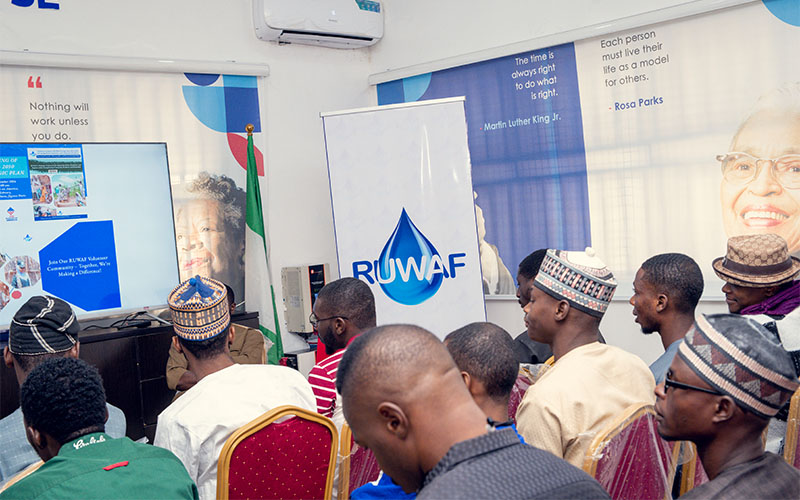+234 912 443 7374

The Rural Water Access Foundation (RUWAF) proudly unveiled its 2024–2030 Strategic Plan, marking a bold step toward accelerating sustainable development in water, sanitation, hygiene (WASH), climate education, and community resilience. The event brought together stakeholders from government, civil society, youth networks, and development partners.
During a dynamic panel session, RUWAF's Executive Director, Paul Hassan Mshelbara, provided a compelling overview of the current WASH landscape in Jigawa State, Nigeria, across Africa, and globally. He emphasized data-driven insights, citing key statistics that highlighted urgent gaps and emerging opportunities in access to safe water and sanitation.
Paul also broke down RUWAF’s strategic approach, which follows a phased logic:
- Phase 1: Water Access – Drilling, rehabilitating, and maintaining solar and hand pump boreholes in underserved communities.
- Phase 2: Sanitation & Hygiene – Promoting behavior change through Community-Led Total Sanitation (CLTS), hygiene programs, and menstrual health in schools.
- Phase 3: Integrated Initiatives – Scaling climate education, emergency responses to WASH-related disasters, and safeguarding vulnerable populations through the prevention of GBV and FGM.
The interactive session featured questions from the audience, particularly on how RUWAF intends to empower local communities and youth in the implementation of this long-term plan. Stakeholders expressed support for RUWAF’s inclusive, data-driven, and youth-led approach.
RUWAF is committed to transparency, collaboration, and innovation as it leads community transformation efforts over the next six years. The strategic plan aims to ensure that no one is left behind in the quest for safe water, dignified sanitation, and climate resilience.